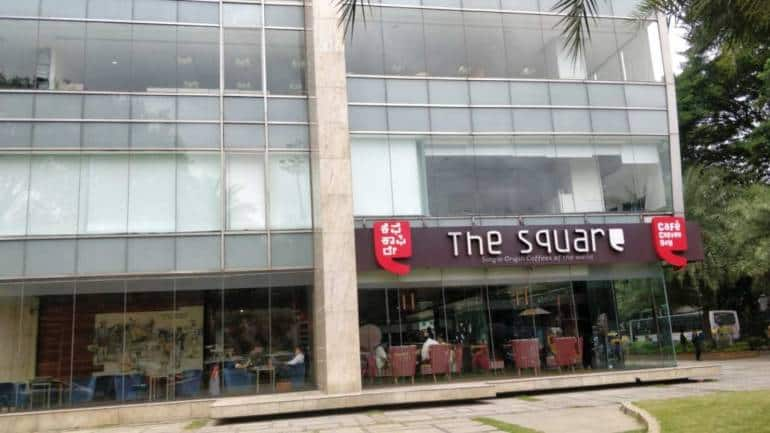Coffee Day Global case: NFRA slaps Rs 2.15 cr fine, imposes ban on 2 auditors, 1 audit firm

Coffee Day Global case: NFRA slaps Rs 2.15 cr fine, imposes ban on 2 auditors, 1 audit firm
The National Financial Reporting Authority (NFRA) has imposed penalties amounting to Rs 2.15 crore on three entities, which include two auditors, for their lapses in the audit of Coffee Day Global Ltd for the financial year 2019-20. Along with the penalties, the NFRA has also barred these entities from certain activities for varying periods.
The case in question relates to the diversion of funds totaling Rs 3,535 crore from seven subsidiary companies of Coffee Day Global Ltd (CDEL) to Mysore Amalgamated Coffee Estate Ltd (MACEL).

The penalties and restrictions imposed by the NFRA are a response to the identified lapses in the audit process, highlighting the seriousness of the irregularities found in the diversion of funds. The NFRA’s actions are aimed at upholding financial reporting standards and ensuring accountability in the audit process.
The diversion of such a significant amount of funds raised concerns about the financial practices and governance within the companies involved. The penalties and restrictions imposed by the NFRA serve as a regulatory response to address the lapses and to deter such actions in the future.

It is essential for entities and auditors involved in financial reporting to uphold the highest standards of integrity and transparency to protect the interests of investors and stakeholders and to maintain the credibility of the financial system. Regulatory authorities play a vital role in ensuring compliance with these standards and taking appropriate actions when lapses are identified.
In the aftermath of the investigation report shared by the Securities and Exchange Board of India (SEBI) in April 2022, the National Financial Reporting Authority (NFRA) launched its own investigation into the professional conduct of the statutory auditors of Coffee Day Global Ltd (CDGL), a subsidiary of Coffee Day Enterprises Ltd (CDEL).

Based on its findings, the NFRA has taken actions against the auditors involved. The audit firm ASRMP & Co has been imposed a penalty of Rs 2 crore, while A S Sundaresha has been penalized with Rs 10 lakh. Furthermore, ASRMP & Co has been barred for a period of four years, and A S Sundaresha has been barred for a period of ten years.
The NFRA’s order specifies that the first two years of restraint for ASRMP & Co and the first five years of prohibition for A S Sundaresha will run concurrently with the debarment period imposed by NFRA in its earlier order related to the audit of CDGL for the financial year 2018-19.
In addition to the penalties and restraints on the audit firm and auditor, Madhusudan U A has also been fined Rs 5 lakh and restrained for a period of 5 years. During the debarment period, all three individuals and the audit firm are prohibited from conducting any audit of financial statements or internal audit of any company or body corporate.
The actions taken by the NFRA are in response to the lapses identified in the audit process of CDGL and demonstrate the regulator’s commitment to enforcing high standards of professional conduct in the audit profession. These measures are intended to ensure accountability and uphold the integrity of the financial reporting system.
The National Financial Reporting Authority (NFRA) conducted a thorough investigation into the audit process of Coffee Day Global Ltd (CDGL) and found significant lapses on the part of the auditors, namely ASRMP & Co, Sundaresha, and Madhusudan.
According to the NFRA’s findings, the auditors failed to exercise professional judgement and skepticism during the audit of CDGL, despite the presence of fraudulent activities. Specifically, the auditors did not detect and raise concerns about the fraudulent diversion of funds amounting to Rs 1,105.10 crore to Mysore Amalgamated Coffee Estate Ltd (MACEL). Additionally, they overlooked the practice of evergreening of loans through structured circulation of funds among various other group companies.
Furthermore, the NFRA discovered that the auditors did not obtain sufficient appropriate audit evidence during the audit of deferred tax assets, which resulted in a misstatement of Rs 244 crore. Additionally, there was a misstatement of Rs 26.19 crore in related party disclosure concerning the purchase of coffee beans from MACEL.
These lapses in the audit process indicate a failure on the part of the auditors to conduct their duties diligently and diligently identify and address irregularities and misstatements in the financial statements of CDGL. The fraudulent activities and misstatements have raised serious concerns about the financial reporting and governance practices within the company.
Based on these findings, the NFRA has imposed penalties and restraints on the auditors involved to hold them accountable for their professional conduct. The actions taken by the regulator are aimed at upholding the integrity and reliability of financial reporting and ensuring that auditors exercise their responsibilities with the required level of professionalism and skepticism.
The NFRA’s investigation revealed serious deficiencies in the audit conducted by ASRMP & Co, Sundaresha, and Madhusudan for Coffee Day Global Ltd (CDGL) for the financial year 2019-20. The auditors failed to identify and report material and pervasive misstatements in the financial statements of CDGL, which amounted to a significant Rs 1,615.04 crore. This failure highlights a lack of competence and due diligence on their part, and it also indicates a failure to meet the relevant requirements of the Standards on Auditing (SA) and provisions of the Companies Act, 2013.
One of the significant omissions in their report was the failure to report the complete absence of Internal Financial Control over financial reporting in CDGL. Internal Financial Control is a crucial aspect of financial reporting, and the auditors’ failure to identify its absence indicates a serious lapse in their audit process.
In their independent auditor’s report, the auditors had given a Disclaimer of Opinion based on their inability to obtain sufficient appropriate audit evidence regarding the recoverability of Rs 1,105.10 crore from Mysore Amalgamated Coffee Estate Ltd (MACEL). This disclaimer raised concerns about the financial health of CDGL and should have prompted the auditors to exercise heightened scrutiny in their audit to identify any other potential irregularities or misstatements.
The magnitude of the misstatements and the failure to report critical aspects of the audit raise significant questions about the auditors’ performance and their adherence to professional standards. The penalties and restraints imposed by NFRA on the auditors are a response to these lapses and serve as a reminder of the importance of maintaining the highest level of competence, diligence, and professionalism in the audit profession.
In conclusion, the NFRA’s findings indicate a failure on the part of the auditors to fulfill their responsibilities diligently and to meet the required auditing standards. The penalties and restraints are intended to enforce accountability and ensure that auditors adhere to the highest standards of integrity and professional conduct in their work.




